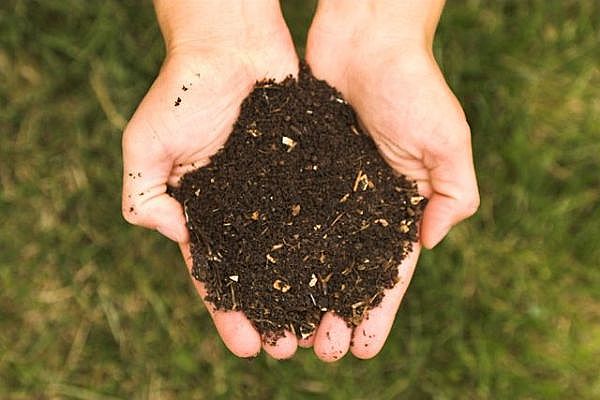- 25 Vegan Handbags That Will Turn Your Girlfriends Heads
- 5 Amazing Vegan Pizza Recipes
- Stop The Hate, Pray For The Victims Of The Orlando Shootings
- I Cannot Seem To Stay Vegan, How Can I Do This Without Feeling Like I’m Missing Out?
- Restaurants With Vegan Options: The Atlanta Bread Company
- In A Rush? 11 Fast Food Restaurants With Vegan Options, Fast Food Vegan
- Chicago, The Windy City Caters To The Vegan Lifestyle
- Going Mobile In Our Vegan World
- Episode 6: New Years Resolutions
How To Start A Compost Pile For Your Organic Garden

One of the best ways to improve your garden is through the use of fresh compost. With a compost pile, you can make your own soil and help the environment by reducing your trash stream. It’s not even hard work. Here’s how to get started.
Devise, Make or Buy A Compost Bin
Choosing your composting method will depend on a few factors. If you have a small yard, lots of money OR nosy neighbors, you may want to invest in a composting bin. The best kind can turn your compost. If you have a big yard, understanding neighbors or very little money, no worries. It is easy to make your own. Use a low box style with some wooden sides. It can be covered with chicken wire or just surrounded by the same. You want to keep out larger animals, particularly pets. For a self-contained unit without a big pricetag, you can use a regular plastic trash can and drill holes in the top for air. This one can be rolled to mix the compost.
Start Composting
Obviously, composting starts with household food waste. You can throw in grass clippings, garden discards, and so forth. Every time you chop or peel, you can put the unwanted pieces in the compost pile, although many recommend that you do not compost citrus fruits or banana peels. You can compost cooked foods, but you should avoid composting those that have been cooked in oil. Coffee grounds are so good for compost that some people ask their local coffee shop for discards.
Strengthen the Compost
Food waste will only make good soil if you strengthen the compost by balancing the “greens” and “browns.” Browns should be added at a 3:1 ratio to greens. Greens include your food waste, grass clippings, garden weeds, and coffee grounds. Browns include tree leaves, pine needles, hay, straw, and sawdust. You can also add shredded paper, including newspaper, which is another way to recycle! Greens add nitrogen to the soil, while browns add carbon. Keeping the right ratio should lead to the best soil when your compost has finished decomposing.
Turn the Compost
Compost will rot without help from you, but it will rot faster and more evenly if you turn it regularly. You will need a pitchfork to gently turn it. By mixing it, you bring new pieces up to the surface where they will decompose faster. You also add air inside the compost itself. Air is necessary to the rotting process. If you have a composter that can be turned, you will find this part quite easy.
Water the Compost.
It is a good idea to use your garden hose or a watering can to wet the compost down occasionally. Water, like air, encourages the rotting process. If it rains a lot where you are, you can skip this step. You just want the compost to stay damp. There’s no need to soak it.
If the Compost Smells, Fix It!
If your compost starts to smell, this may mean that it is not being turned often enough. It may indicate that you need to add more browns to help the greens decompose faster. To take care of odors, add the browns and mix the compost. Keep at it for a few weeks and the smells should take care of themselves. Hopefully, you’ll take care of it before any neighbors start complaining.

Keep the Flies Away
If the compost is attracting flies, make sure to cover each little pile of food waste with some leaves or other browns. Also, make sure that you aren’t adding oily foods which attract pests. Often, the problem is simply that the pile is too wet. Wet compost can lead to compost gnats. If gnats are a problem, quit watering and let the pile dry out. This should kill them off.
Cold Weather
Composting requires heat, i.e. warm or hot weather. During cold weather, the decomposition process slows down considerably. Some people choose to cease active composting during the winter months for this reason.
Using the Compost
When you get ready to use your compost, apply it to the garden soil about two to four weeks before planting. It should be mixed gently and thoroughly with the existing top layer to form a new, richer soil.
More Compost Tips
If you enjoy a true fall with lots of leaves, you can harness their power by making bins to keep them. You may need to turn these as well. When you need the leaves as ‘browns’ in your compost, you’ll have a ready supply. You can use a mulching mower to chop leaves into bits for quicker decomposition in your compost pile.























